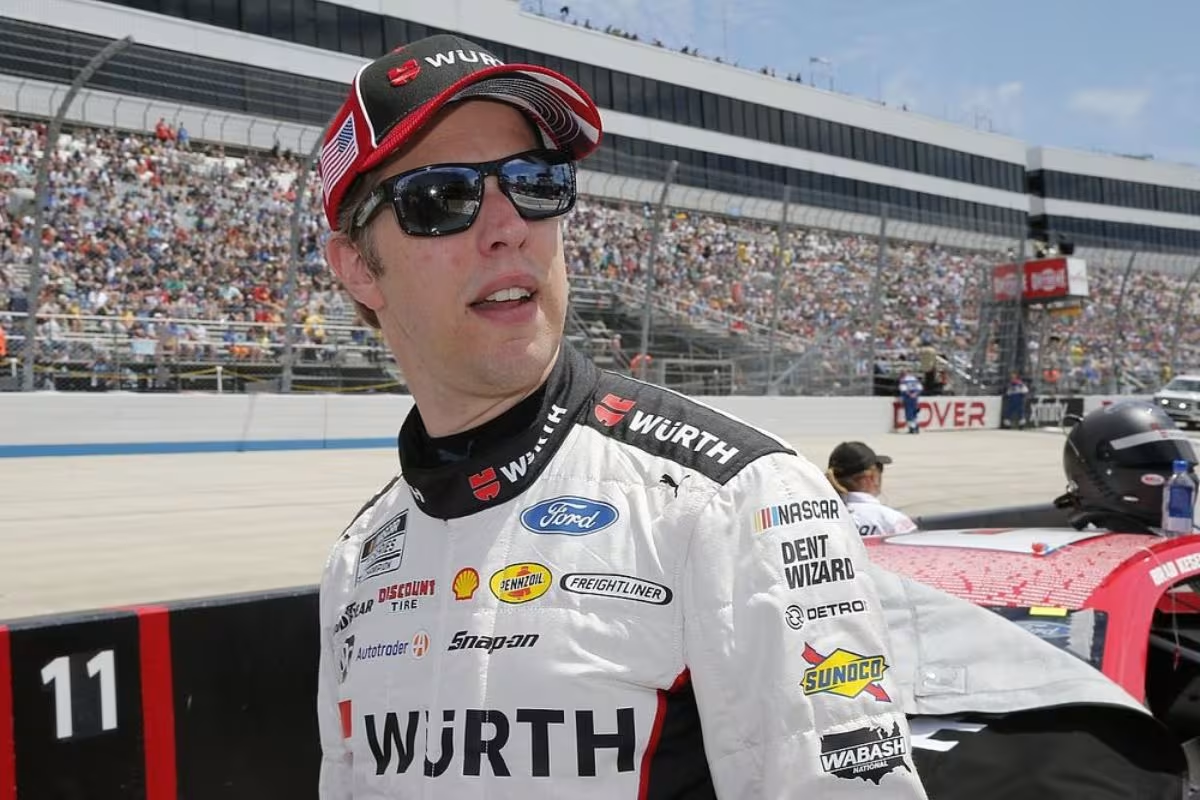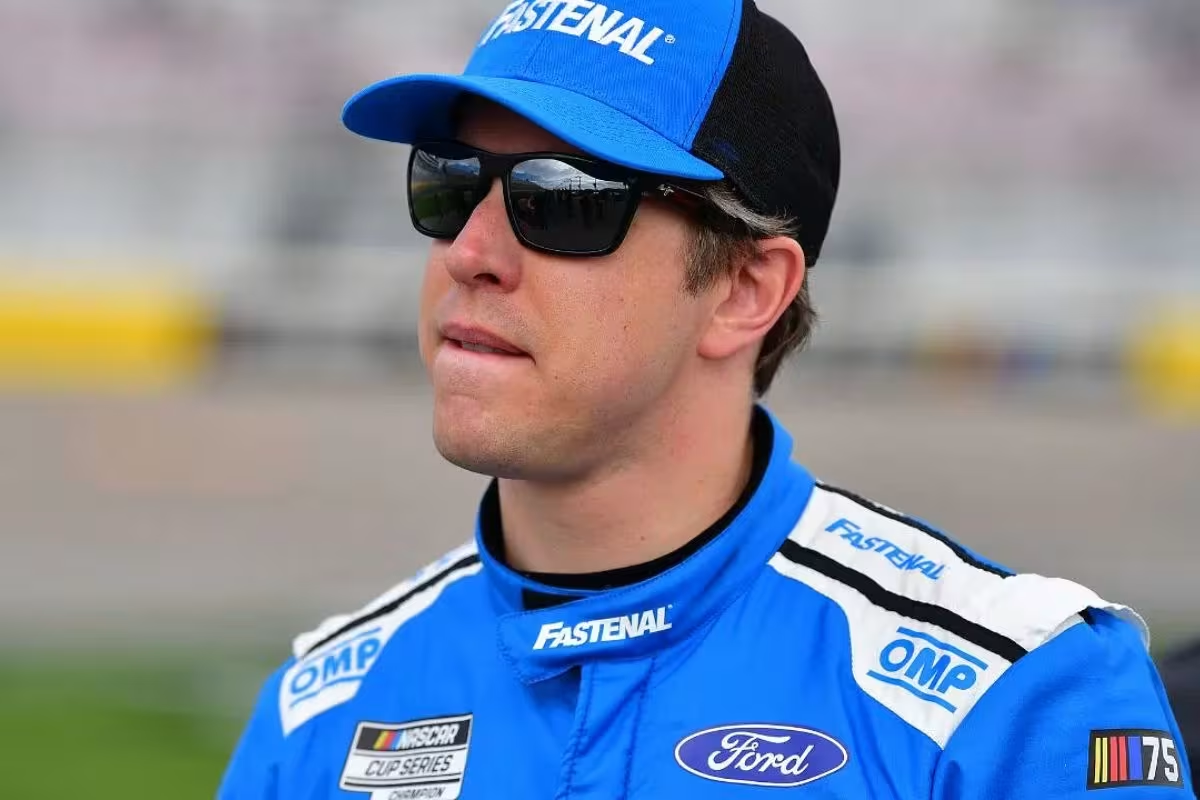NASCAR’s Martinsville shown to be corrupt, and fans are buzzing about what happened. Tensions rose as some drivers teamed up in ways that raised eyebrows, leaving many wondering if racing is still fair. Brad Keselowski has had enough and is calling for a big change. The details of this controversial race, questions linger about how far NASCAR drivers will go to win and what this means for the future of the sport we love.
Key Highlights
- The Martinsville race showed drivers prioritizing team strategies over individual performance, raising integrity concerns in NASCAR.
- Brad Keselowski criticized the NASCAR playoff format for promoting luck over skill, undermining drivers’ hard work throughout the season.
- Manipulative tactics, like those seen in “Spingate,” highlight a culture of unethical behavior within NASCAR, prompting calls for reform.
- NASCAR Teams defend their actions as strategic, but ethical questions arise regarding the impact on competitive fairness and driver reputations.
- Keselowski’s elimination from the NASCAR playoffs underscores the urgent need for NASCAR to reevaluate its rules to restore integrity and fan trust.
The Controversy at Martinsville
Engaging in teamwork, albeit controversial, marked the recent Martinsville race, exposing a troubling trend within NASCAR’s competitive landscape. This event, which should exemplify the core of hard-nosed racing, devolved into a demonstration of tactical collaboration among drivers that undermined the spirit of competition.
In a tightly contested points battle among manufacturers, the actions of key drivers revealed a disturbing willingness to sacrifice individual performance for the sake of their Original Equipment Manufacturer (OEM) teammates.
The Toyota team illustrated this phenomenon vividly, with Christopher Bell seemingly benefiting from tactical assistance by Bubba Wallace. Likewise, the Chevrolet contingent witnessed Austin Dillon and Ross Chastain deliberately throttling back their pace to facilitate a win for William Byron.
Such tactics raise critical questions about the integrity of racing in NASCAR, as the emphasis on teamwork over individual skill distorts the fundamental principles of the sport.
The Martinsville race served as an indication of how the competitive dynamics within NASCAR can shift, placing greater importance on collective gains rather than highlighting individual talent.
As NASCAR continues to navigate these complexities, the need for clear regulations and a return to the core values of hard racing becomes increasingly urgent.
Brad Keselowski’s Frustration with the NASCAR Playoff Format
Brad Keselowski’s mounting frustration with the NASCAR playoff format has become increasingly evident, particularly in the wake of the recent Martinsville race. The 36-time NASCAR Cup Series winner has openly criticized the system that places immense stress on drivers, regardless of their performance throughout the season. This frustration is rooted in the belief that the current playoff structure undermines the hard work and skill displayed over the course of the year.
The cutthroat nature of the NASCAR playoff format has led to a climate where drivers are constantly at risk of elimination, often leaving the outcome of their season in the hands of unpredictable variables. Keselowski’s calls for change resonate with many in the NASCAR community who share concerns about fairness and integrity in the sport.
This format, while designed to heighten drama and excitement, has arguably created a scenario that favors luck over skill. As Keselowski demands a reassessment of this system, the NASCAR community finds itself at a crossroads—balancing the thrill of competition with the need for a fair and equitable framework for all competitors. The Martinsville race may serve as a crucial moment in this ongoing debate.
Brad Keselowski Calls Martinsville a Breaking Point
The recent events at Martinsville have intensified the dialogue surrounding NASCAR’s playoff format, with many viewing the race as a vital moment for the sport. Brad Keselowski, a prominent voice in the conversation, has characterized the situation as a breaking point. His frustrations highlight the growing discontent with a system perceived as fostering unethical racing practices.
- The introduction of a 10-race NASCAR playoff format in 2014 fundamentally altered competitive dynamics.
- Stage points, implemented in 2017, have incentivized drivers to prioritize short-term gains over fair competition.
- Instances of tactical manipulation, such as Cole Custer’s actions in 2022, exemplify the lengths to which teams will go to advance.
- Keselowski’s elimination in the initial round emphasizes the personal stakes in this contentious environment.
Keselowski’s declaration that Martinsville should be the “last straw” speaks volumes about the urgency for reform. His call for change is not just a personal grievance; it resonates with a broader frustration among competitors who yearn for integrity in racing.
“This should be the last straw on the camel’s back for the playoffs.” – Brad Keselowski
This should be the last straw on the camel’s back for the playoffs. https://t.co/j4Z5MSGkjo
— Brad Keselowski (@keselowski) November 3, 2024
The current NASCAR playoff structure has fostered a culture where racing for points often overshadows the essence of competition, leading to calculated moves that compromise the spirit of the sport.
As NASCAR navigates the future, the sentiments expressed by Keselowski may signal a critical moment in the league’s evolution. Stakeholders must assess whether the current format truly serves the interests of genuine racing or if it inadvertently encourages a culture of manipulation that threatens the sport’s credibility.
Historical Context of Manipulative Tactics
Manipulative tactics in NASCAR are not a new phenomenon; they have deep roots that reflect the evolving competitive landscape of the sport. Historical instances, such as the infamous “Spingate” incident in 2013 involving Clint Bowyer, exemplify how teams occasionally resort to underhanded strategies to gain advantages.
Bowyer’s deliberate spin to aid teammate Martin Truex Jr. illuminated the ethical dilemmas surrounding team dynamics and NASCAR playoff eligibility, resulting in considerable repercussions for Michael Waltrip Racing, including a substantial fine and the loss of a NASCAR playoff spot.
The ramifications of such actions extend beyond immediate penalties; they shape perceptions of integrity within the sport. In the wake of these incidents, drivers like Brad Keselowski have openly expressed their views on the NASCAR playoff format, emphasizing the necessity of survival over sportsmanship.
His remarks highlight a disconcerting trend: the prioritization of outcomes over ethical conduct. Keselowski’s assertion that reaching the NASCAR Championship 4 is paramount, regardless of the experience, emphasizes a systemic issue where the end justifies the means.
“Sometimes surviving is thriving in the playoffs with the way these things are set up. I guess I have a different perspective on it. I want to get through each round the best we can and then move on. Ultimately, if you get to the Championship 4, nobody else cares about the nine races before that. Conversely, you can win two or three races and not make the final four and it still not be considered a good year.” – Brad Keselowski
As the sport grapples with contemporary allegations of corruption, it is crucial to reflect on this historical context. Past manipulative tactics have paved the way for a culture where bending the rules often becomes a tactical choice.
This environment not only challenges the sport’s integrity but also calls into question the very foundation of competition, as drivers increasingly navigate a landscape where manipulation may be perceived as a necessary evil rather than an aberration.
Responses from NASCAR Teams on Allegations
Numerous teams have swiftly responded to allegations of manipulation during the Martinsville race, emphasizing their commitment to fair competition despite the intense strain of the NASCAR playoffs. The actions of both Toyota and Chevy teams have come under scrutiny, particularly concerning their drivers’ performances and tactical decisions.
- Bubba Wallace asserted that he did not intentionally slow down to aid Christopher Bell, citing mechanical issues rather than collusion.
“I went loose or something broke. I was nursing it. Then, (Bell) tried to slide me and I’m like, ‘Brother, I’m trying to bide our time and not crash and bring out a caution, jumble up the whole field.’ That was it.” – Bubba Wallace
- William Byron’s teammates, Austin Dillon and Ross Chastain, significantly refrained from overtaking him, leading to questions about their motives and intentions.
- Hendrick Motorsports vice chairman Jeff Gordon acknowledged the controversy but defended the teamwork approach, likening it to traditional drafting strategies employed at superspeedways.
“You work with your teammates and partners to try and give yourself the best chance to get in. It’s no different than when we go to Talladega and Daytona and how we work together to try to ensure success, but I couldn’t really tell you what was going on there.” – Jeff Gordon
- Brad Keselowski expressed concern over the necessity for such tactics, questioning the general integrity of the competition.
While teams endeavor to demonstrate their innocence, the implications of these actions cast a shadow on the legitimacy of the NASCAR playoff format.
The collaboration among teammates, while not inherently wrong, raises ethical questions about the lengths to which drivers will go to secure their advancement. As the season progresses, it remains to be seen how NASCAR will address these allegations and whether any changes will be implemented.
The current NASCAR playoff structure, designed to heighten competition, may inadvertently incentivize these controversial tactics, prompting a critical examination of NASCAR’s operational framework.
News in Brief: NASACR’s Martinsville Shown to Be Corrupt
The recent allegations of corruption surrounding NASCAR’s Martinsville highlight deep-seated issues within the sport’s NASCAR playoff structure. Brad Keselowski’s vocal criticism emphasizes the frustration felt by many regarding the perceived manipulative tactics that compromise the integrity of competition.
This situation serves as a significant turning point for NASCAR, prompting a reevaluation of policies to guarantee fairness and transparency. Addressing these concerns may restore trust among teams and fans, ultimately protecting the integrity of the sport.
ALSO READ: Christopher Bell Brutally Penalized by NASCAR in Heart-Stopping Martinsville Finale



